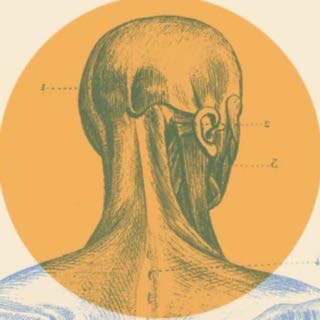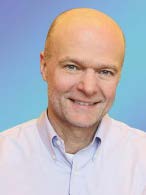

Since a healthy brain promotes a healthy gut, and a dysfunctional gut will hurt the brain, this brain-gut interdependence often becomes a vicious cycle. In people with special needs, all the issues become compounded, since they already have some nervous system impairment in addition to this scenario.
BY DR. STEN EKBERG
We all know That The Brain regulates every function in The Body, and recently There has Been a lot of attention on The Gut-Brain relationship and interdependence. in This article i Will discuss some of The Basic properties of Gut and Brain, how They relate To each other, and The Types of foods That can create problems or provide solutions.
When we understand the underlying principles and mechanisms, rather than just learn a laundry list of what-to-do's, I believe we will make long term changes which can have a profound, positive impact on our own well-being, as well as that of our loved ones.
The brain is a very active organ. It makes up about 2% of your body weight, but it uses 20% of your energy, 20% of your calories and 20% of your oxygen. So what that means is that the brain's job of processing signals is really hard work, and the brain is very "hungry" and demanding of resources.
Muscles perform mechanical work, whereas the brain performs electrical work. Its job is to manage the electrical state of membranes by shuffling sodium, potassium and calcium ions back and forth across those cell membranes. The ability to shuffle minerals, and to keep the membranes in good repair, is what determines the quality of our thoughts, focus, digestion, health and everything else about us. A cell membrane is a barrier that is very selective about what it lets through. This ability to selectively determine what is allowed to enter, and what is left outside, is the key to all life as well as the key to all brain and immune function.
The brain needs two things to perform well - quality signals and quality nutrients. The brain receives signals from our senses and translates that information into a picture of what the world looks like through a process called perception. Lots of accurate signals equals a precise, high resolution picture from which the brain can make correct decisions. Incomplete, distorted signals mean that the brain has an incomplete, fuzzy picture and will have a hard time making the right choices. Garbage in - garbage out.
Signals also provide activation for the brain cells. Just "The Brain needs TWo ThinGs To perform Well qualiTy siGnals and qualiTy nuTrienTs." like muscles grow stronger from resistance exercise, and shrink from disuse, brain cells grow stronger from more signals and shrink from the lack of them. This is the mechanism behind neuroplasticity. Signals, therefore, is the "juice" that keeps the brain alive. Use it or lose it.
All life forms are able to make decisions and respond to their environment. What allows them to do that is selective cell membranes acting as barriers. In humans there are two barriers that are especially important. The first barrier is the gut lining. It serves as a barrier between the environment and our blood stream. When we put things in our mouths, it contains all sorts of things that we do not want in our blood stream. Food is not technically "inside" our bodies until it has entered our blood and our cells, and it is up to the gut barrier to decide if it belongs inside or not.
Only very specific, very small things should be allowed to get inside. Food consists of large particles, cells, proteins, fiber, bacteria, etc. All of these are very large particles. Much too large to be allowed through. That's why we have a digestive system, with hydrochloric acid in the stomach and enzymes in the intestines. The purpose of the first half of the digestive tract is to break the food down into very small particles so that it can be absorbed in the second half.
In an ideal scenario, food is ultimately broken down into individual amino acids, fatty acids and single carbohydrate molecules called sugar. These very small particles can safely enter through the gut barrier, because they are too small to cause an allergic reaction. They are the fundamental units from which the body can make energy and building blocks for healing and repair.
A healthy gut flora, or biome, is a mix of bacteria dominated by friendly bacteria which keep the unfriendly, or pathogenic (disease causing), bacteria in check. When we take antibiotics, we kill off whole colonies of bacteria, good and bad. The pathogenic bacteria however, tend to thrive on our modern diet of sugar, grain and processed food, so the pathogenic bacteria recover faster, become dominant and create dysbiosis (unbalanced gut flora), the impact of which we are only beginning to grasp.
The combination of toxins from pathogenic bacteria, sugar, grain and stress create irritation and inflammation, which increases wear and tear on the stomach lining. In an effort to control the situation, immune cells move in to try to clean up the mess, and in the general chaos, there will be some casualties. The immune system produces antibodies, some of which may start attacking the tight junctions, which is like the "cement" that hold the cells together. When the tight junctions are attacked, the gaps increase and the gut becomes leaky.
When the lining is damaged and the bacteria are out of balance, enzyme production suffers, the digestion of food becomes even more incomplete, and the gut barrier has openings large enough for undigested particles to pass through, causing further immune reactions and inflammation. The pathogenic bacteria, thriving on sugar and grain, produce toxins which now leak into the bloodstream.
What does this do to the brain? Well, the other important barrier we want to mention is the blood brain barrier (BBB), which protects the delicate brain cells from toxins in the blood. This barrier also has tight junctions which can get attacked by the same antibodies that attacked the tight junctions in the gut. The result is that when you have a leaky gut, you are almost guaranteed to have a leaky brain as well.
Remember those toxins produced by the pathogenic bacteria in the gut that got into the blood? They will now get into the brain as well and basically poison the brain. This mechanism has been linked to a lot of mental disorders as well as developmental problems like the autism spectrum. Many cases have been improved or even reversed by restoring gut function and bacterial flora.
Since a healthy brain promotes a healthy gut, and a dysfunctional gut will hurt the brain, this brain-gut interdependence often becomes a vicious cycle. In people with special needs, all the issues discussed above become compounded, since they already have some nervous system impairment in addition to this scenario. On a positive note, it also means that there is great potential for improvement by understanding and taking some effort to correct the situation.
When it comes to health, I believe the key "There is GreaT poTenTial for is to look at the big picture. To understand that our diet and environment have changed more in the last 50 years than it has in the previous 250,000 years, and that most disease can be explained by those changes.
While there are several contributing factors, I believe the most important one, and one that we can influence, is the quality of our food. Too much discussion is wasted on details such as meat vs vegetables or carbohydrates vs fat, rather than stepping back and looking at the big picture. What has changed? We don't need more details, we want a whole new outlook on food.
The type of food that is innately right for humans ultimately comes down to the properties of our digestive tract and the type of enzymes and stomach acid we can produce to digest and process food. The type enzymes you are capable of producing depends on your DNA, which is essentially identical to that of early Homo Sapiens, 250,000 year ago. In other words; the DNA in your body today is adapted to the food we have eaten for the last 250,000 years. This is the philosophy behind the Paleo diet which says that we would do best to only eat the type of foods that were available to our ancestors. Anything else would be foreign to our DNA, or in my opinion, at least a gamble. That excludes modern grain, sugar, pasteurized dairy, and all processed food, food additives and chemicals. I don't promote or think that we should be slaves to any particular diet, but I think the Paleo diet is a great starting point to understand food.
In this short article, I am not able to discuss in detail how to heal leaky gut, but a great resource is the website gapsdiet.com . The short version is: eliminate all sugar, grain and processed food, and introduce natural, fermented and healing foods like sauerkraut, yogurt, and bone broth. Eat whole food and allow the gut to recover.
The brain is made up of about 70% fat, so high quality fats in the diet is crucial for a healthy brain. DHA, which makes up about 40% of the fat in the brain is critically important, but almost universally deficient. It is a very long, and squiggly molecule found in fish oil. DHA makes the cell membranes more flexible, and is very important for cell membranes properties.
Few topics are plagued with more cotroversy and misinformation than that of food. We tend to get caught up in the details. We can't see the forest for the trees. I believe the answers are in plain view if we only look at the foundations of human physiology and understand the historical perspective. Up to 70% of calories consumed in this country are from sugar, refined grain and highly processed vegetable, seed and grain oils. Foods that are not only devoid of nutrients, but also inflammatory, allergenic and often toxic. We don't need to sift the details. We need a whole new outlook on food.
There are two questions we want to ask ourselves. 1) Was this food around 50,000 years ago? And, 2) Has it been altered by man? The key to understand is that for eons, humans, like all other animals, have lived on whole food provided for us by the planet. A fact that has only changed in the last century; a mere blink relative to the age of your DNA.
Start making food as important as it is. Learn enough to make good choices. You and your loved ones are worth it.•
ABOUT THE AUTHOR:

dr. sten Ekberg d.c. is a holistic doctor, clinical nutritionist, and former olympic decathlete. as the founder of the healing center wellness for life (wFl), dr Ekberg is a pioneer in the field of integrative health care and all-natural health restoration. Many last resort cases have had their health restored when dr. Ekberg was able to identify the root cause others had missed. he has a very popular youtube channel providing free information on all topics relating to